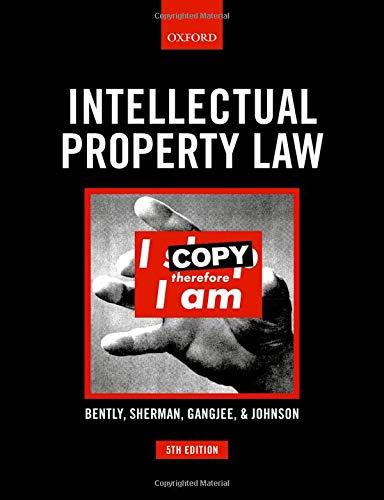Question
Bound by the terms of the contract means, both parties have an agreement and intend to enter into a legally binding contract that is enforceable
Bound by the terms of the contract means, both parties have an agreement and intend to enter into a legally binding contract that is enforceable in a court of law. In this case it is a written contract and both Sarah and Andy have agreed to the terms of the contract and signed.
Even though it is a written contract and you have agreed to the terms and signed making it legally enforceable there is still an exception which is called parol evidence rule. this is a written contract that appears to be complete, but there is verbal evidence that would add to, vary or contradict the written contracts in any way and will not be permitted by the court.
There are a few exceptions to the parol evidence evidence rule and they include (Custom or trade usage, verbal condition precedent, contract is partly written and partly oral, terms are ambiguous, mistakes in contract & identity of parties is unclear).
We will be focusing on collateral contract which is an alternative to the third exception of parol evidence (contract is partly written and partly oral). A collateral contract is a separate contract that is related to the main contract. A collateral promise is made by a party and the other party enters into the contract mainly solely because the collateral promise has been made.
In De Lassalle v Guildford 1901, the tenant was negotiating a lease agreement with the landlord and just prior to the exchange of contracts the tenant wanted assurance from the landlord that the drains were in good condition and the landlord gave that assurance and the tenant signed on that assurance. Later the drain was found to be defective and the tenant sued. it was deemed that the tenant only entered the main contract because the landlord made the collateral promise that the drains were not defective. the court accepted and awarded damages for breach of collateral contract to tenant.
Similarly in JJ Savage and Sons Pty Ltd v Blakney, Blakney contracted savage a boat building company yo build a specific boat to Blakney's liking. Blakney had discussions about an engine
and the speed he wanted the boat to be. Savage in response to Blakney's enquiry he listed three alternative engines. When Blakney received the boat and it was not to the speed he wanted he sued for breach of collateral contract. The court rejected the collateral contract argument form Blakney on the basis that he could've specified in the written contract the exact speed he wanted and also because he didn't get a promise that the exact speed was achievable but just merely recommendations.
Assessing both above cases, we believe the court will use De Lassalle v Guildford 1901 as it is most similar to your case because you only wanted to buy the boat if it was under 5 years and Andy specifically assured you that it was five years old when in fact it was 15 years old. The courts put limitations on collateral contract arguments and require that the collateral contract must be consistent with the main contract and that the only reason you are entering the contract was the collateral promise made to you. Since your case meets these requirements you are eligible and will likely succeed in suing Andy for breach of collateral contract.
Step by Step Solution
There are 3 Steps involved in it
Step: 1

Get Instant Access to Expert-Tailored Solutions
See step-by-step solutions with expert insights and AI powered tools for academic success
Step: 2

Step: 3

Ace Your Homework with AI
Get the answers you need in no time with our AI-driven, step-by-step assistance
Get Started


